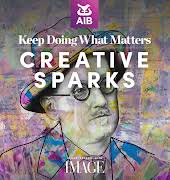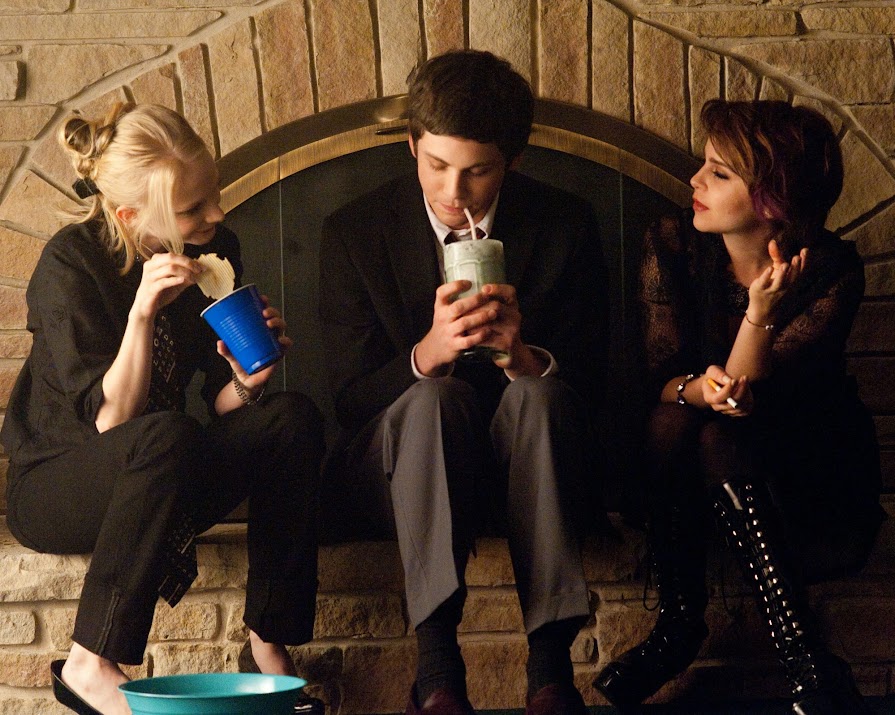
By IMAGE
19th Dec 2017
19th Dec 2017
Do they always find you in the kitchen at parties? CLAIRE O’MAHONY offers some tips for the socially unconfident this Christmas.
There seems something Scrooge-like about admitting that you fear and loathe the social whirl the festive season brings. “I just adore small talk,” said no one, ever, but for some people (I include myself here) the notion of a diary heaving with work-related events, gatherings with friends, family occasions, and all the randomness that accompanies this time of year – and from mid-November onwards – seems like a huge challenge. Panic begins to escalate as potential pitfalls build in our heads: What if I don’t know anyone there? What if nobody talks to me? What if I’m inappropriately dressed? What if my poor grasp of current affairs is exposed? What if I can’t find the bathroom? What if my dull and limited personality repels people?
Of course, everybody’s fears are different and there are many reasons why someone might be apprehensive about social events. There’s good old-fashioned shyness, which affects most people at some time in their lives. Perhaps you’re an introvert, in which case it’s not that you are averse to socialising, but large crowds and networking are not to your tastes – you’d prefer the intimacy of a one-on-one conversation and you’re happier in your role as an observer rather than active participant. Then there’s social anxiety, a disorder that affects an estimated 7-8% of the adult population. This is characterised by a fear of being judged negatively by others, and being extremely self-critical of one’s “public performance”. At its most acute, it can be debilitating and spills over into all aspects of the sufferer’s life and not just the socialising aspect. It can result in avoiding any interactions with strangers and can be extremely isolating, but it has been proven to respond well to cognitive behavioural therapy. If shyness is a general discomfort and self-consciousness, social anxiety has deeper roots and will more than likely benefit from professional help.
But if you’re sitting uncomfortably somewhere on the spectrum of social awkwardness, the good news is that party apprehension does not have to be a cross you must always carry. You may not become the Dorothy Parker of your generation, but you don’t have to be afraid.
BE NICE(R) TO YOURSELF
According to counsellor and psychotherapist Liz Wright of Dublin Therapy (dublintherapy.ie), we often have expectations of ourselves that we would never demand of others. “The underlying perspective is if I open my mouth, it has to be to say something really funny and really intelligent”. I then won’t put that high standard on somebody else, she says. The person beside me, I think they’re great because they open their mouths and say anything – they’re so comfortable – but I’m not going to say anything unless it’s really interesting. That sets up the anxiety and stress. Essentially, we have to stop being so hard on ourselves. Self- compassion is the antidote to the self-critic and I think this goes across the board, be it social anxiety or other issues. I think if we all practice self-compassion, we’d be much more emotionally healthy people, regardless of our issues. Self-compassion is hugely healing.
DO A LITTLE PREP WORK
An exercise Liz Wright suggests is to visualise yourself being social at the situation and imagining it going well. We often spend time creating scenarios where nobody speaks to us or we trip up and the room goes quiet when we walk in, and that makes us uncomfortable, she says.
So to actually visualise things going well – not unrealistically well, but that you feel comfortable – helps you relax about it. A common piece of advice is to have some topics in mind, ready to drop into conversation. This can help give you a sense of control, but Wright says that these coping mechanisms aren’t necessarily to be embraced. In the short term, it’s fine, but the difficulty is that you then become dependent on it and it maintains your social anxiety because you’re creating that sense of needing to be in control of the situation to survive it. Psychologist Allison Keating of Dublin’s BWell Clinic (bwell.ie) says that anxiety is always about the future and recommends the following: In the run-up to a party, I would perhaps schedule 15 minutes where you sit down and worry about it and write
down what it is you’re actually worried about, rather than worrying about it from day to night. And don’t make the schoolgirl mistake of going to a party hungry. Your blood sugars can drop and you feel that shake of adrenaline, which the body can misinterpret as a sign of being anxious. It sounds weird, but a little packet of crackers in your handbag is a really amazing tool to calm your blood sugar levels.
CONSIDER YOUR CLOTHES
Physical discomfort can exacerbate feelings of mental discomfort – if you’re spending the evening tugging at a hemline, or shifting your weight from foot to foot in vertiginous heels, it will hardly contribute to feeling relaxed and receptive.
Don’t wear anything you will feel uncomfortable in, says Allison Keating. That may seem somewhat superficial coming from a psychologist, but I think that it’s very important. If you’re thinking, I hate this, I’m not comfortable, then don’t wear it. She also advises layering.
Wear clothes you can take off, like a cardigan, she says. Heat is a major trigger for people with anxiety, so if we feel anxious and stressed, we feel hot and bothered. If you can easily take something off, cool down and have a glass of water – these things can have an immediate impact.























